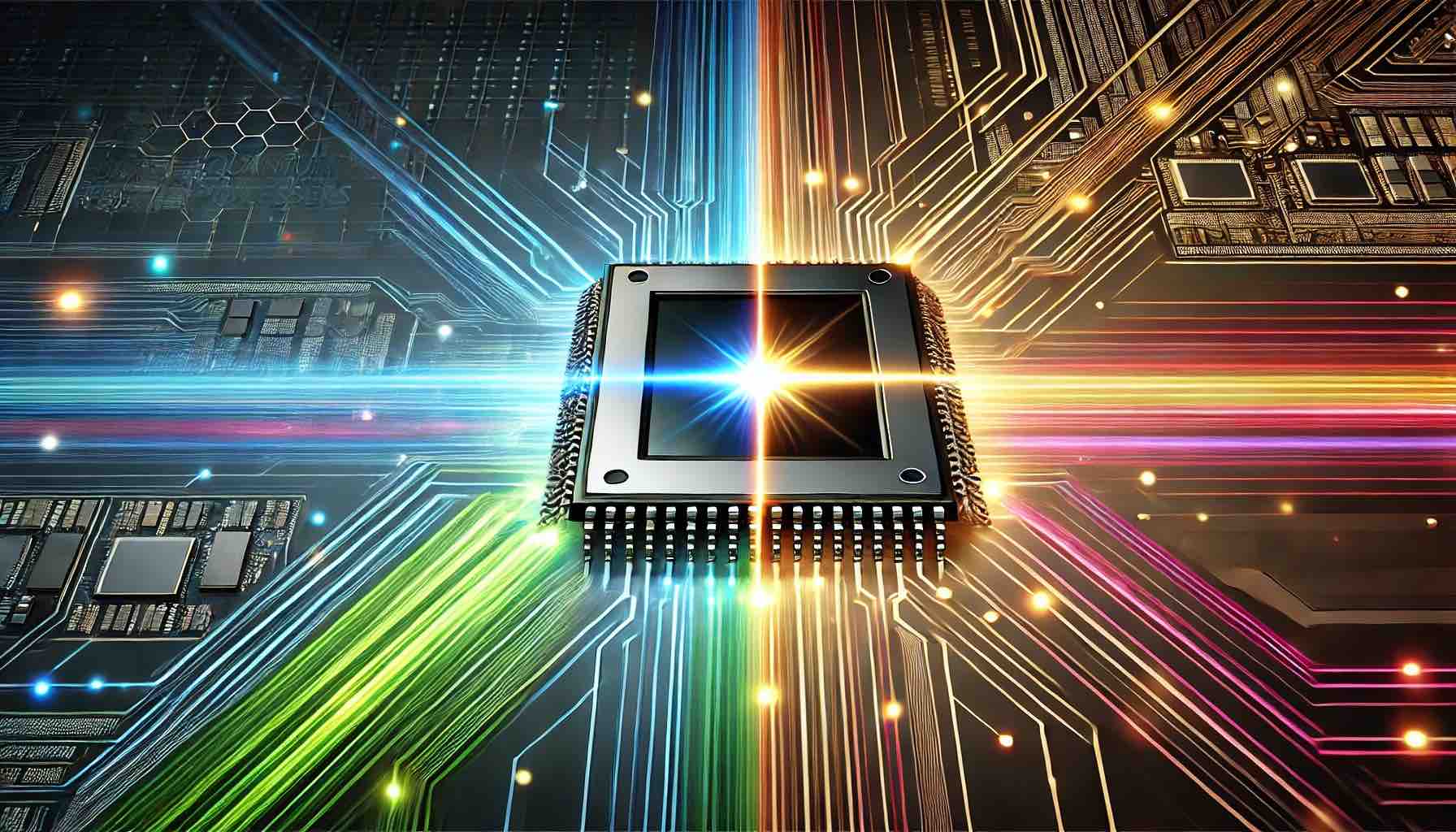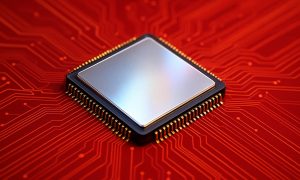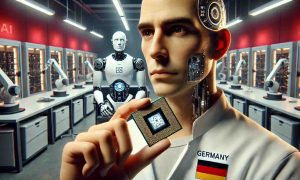

AI Quantum Chips vs Traditional Processors: What’s the Difference?
Quantum computing has emerged as one of the most revolutionary advancements in modern technology. At the heart of this innovation lies quantum ai chips, which operate fundamentally differently from traditional processors. In this article, we’ll explore the contrasts between quantum chips and classical processors, breaking down how each operates, their advantages and limitations, and real-world applications of quantum computing.
How Quantum Chips Operate at Subatomic Levels
Traditional processors, like those found in your computer or smartphone, function based on classical computing principles. These processors use bits as the fundamental unit of data, which exist as either a 0 or 1. In contrast, quantum chips leverage quantum mechanics to operate at the subatomic level, utilizing qubits (quantum bits) as their building blocks.
Qubits and Superposition: Unlike classical bits, qubits can exist in a state of superposition, meaning they can represent both 0 and 1 simultaneously. This property allows quantum chips to perform multiple calculations at once, exponentially increasing their processing power.
Entanglement and Correlation: Quantum entanglement is another phenomenon exploited by quantum chips. When qubits become entangled, the state of one qubit is directly related to the state of another, regardless of the distance between them. This correlation enables faster and more efficient data transfer and processing.
Quantum Gates and Algorithms: Quantum chips use quantum gates to manipulate qubits. These gates form the building blocks of quantum algorithms, allowing for operations like Grover’s search algorithm or Shor’s factoring algorithm, which are significantly faster than their classical counterparts for specific tasks.
Sources:
- IBM Quantum Computing. (2024). “Introduction to Quantum Mechanics in Computing.” IBM
- Rigetti Computing. (2024). “Understanding Qubits.” Rigetti
Why Quantum Chips Are Faster for Complex Calculations
The unique properties of quantum chips make them exceptionally suited for complex computations that would take traditional processors an impractical amount of time to complete.
Parallelism in Quantum Chips: Due to superposition, quantum chips can explore multiple solutions to a problem simultaneously. This parallelism drastically reduces the time needed for computations like optimization and simulation, which are resource-intensive for classical processors.
Exponential Scaling: While traditional processors scale linearly with the addition of more transistors, quantum processors can achieve exponential scaling due to the increase in qubits. For instance, a quantum processor with 50 qubits can outperform the most advanced supercomputers in solving specific problems.
Applications in Complex Fields: Quantum chips excel in tasks such as cryptography, molecular modeling, and financial modeling. For example, Shor’s algorithm can factorize large numbers exponentially faster than classical algorithms, posing challenges to existing encryption methods.
Sources:
- Arute, F. et al. (2024). “Quantum Supremacy Using a Programmable Superconducting Processor.” Nature
- Google Quantum AI. (2024). “Quantum Speedup in Practice.” Google AI
Real-World Examples of Quantum vs Classical Processing
Cryptography and Security: One of the most notable applications of quantum chips is in breaking classical encryption schemes. Traditional processors rely on computational difficulty to secure data. Quantum algorithms, like Shor’s, can efficiently break these encryptions, necessitating the development of quantum-resistant cryptography.
Pharmaceuticals and Drug Discovery: Quantum chips are being used to simulate molecular structures and interactions with unprecedented accuracy. For example, companies like IBM and Pfizer are collaborating on quantum-powered drug discovery platforms that classical processors cannot match in speed or efficiency.
Logistics Optimization: Quantum chips also shine in logistics and supply chain management. For instance, Volkswagen used a quantum processor to optimize traffic flow in urban areas, outperforming traditional methods.
Artificial Intelligence: Quantum computing is revolutionizing AI by accelerating machine learning algorithms. Quantum-enhanced machine learning can handle larger datasets and find patterns faster than traditional AI systems.
Sources:
- Quantum Daily. (2024). “Applications of Quantum Computing in Industry.” Quantum Daily
- Volkswagen Group. (2024). “Quantum Traffic Optimization.” Volkswagen
Limitations of Quantum Chips
While quantum chips offer groundbreaking capabilities, they also come with significant challenges that must be addressed before widespread adoption.
Decoherence and Stability: Qubits are extremely sensitive to environmental disturbances, leading to decoherence. This instability can result in computational errors, limiting the practical use of quantum processors.
Scalability Issues: Building large-scale quantum processors is complex and expensive. The current state-of-the-art quantum chips have limited qubits, which restricts their applicability for broader tasks.
Energy Requirements: Quantum processors require highly controlled environments, such as near-absolute zero temperatures, to function. This makes their operation energy-intensive and costly compared to traditional processors.
Sources:
- MIT Technology Review. (2024). “Challenges in Quantum Computing.” MIT Tech Review
- D-Wave Systems. (2024). “Overcoming Decoherence in Quantum Chips.” D-Wave
Conclusion: The Future of Quantum and Traditional Computing
Quantum chips represent a paradigm shift in computing, offering capabilities far beyond what traditional processors can achieve in specific domains. Their ability to solve complex problems in cryptography, drug discovery, and optimization makes them indispensable for the future. However, traditional processors remain critical for everyday computing tasks due to their stability, cost-effectiveness, and scalability.
As research progresses, the integration of quantum and classical systems may become the norm, combining the strengths of both technologies to unlock new possibilities.
Harvard Style Bibliography
Arute, F., et al. (2024). Quantum Supremacy Using a Programmable Superconducting Processor. Nature. Available at: https://www.nature.com/
D-Wave Systems. (2024). Overcoming Decoherence in Quantum Chips. Available at: https://www.dwavesys.com/
Google Quantum AI. (2024). Quantum Speedup in Practice. Available at: https://ai.google/quantum-computing/
IBM Quantum Computing. (2024). Introduction to Quantum Mechanics in Computing. Available at: https://www.ibm.com/quantum-computing/
MIT Technology Review. (2024). Challenges in Quantum Computing. Available at: https://www.technologyreview.com/
Quantum Daily. (2024). Applications of Quantum Computing in Industry. Available at: https://www.thequantumdaily.com/
Rigetti Computing. (2024). Understanding Qubits. Available at: https://www.rigetti.com/
Volkswagen Group. (2024). Quantum Traffic Optimization. Available at: https://www.volkswagenag.com/













